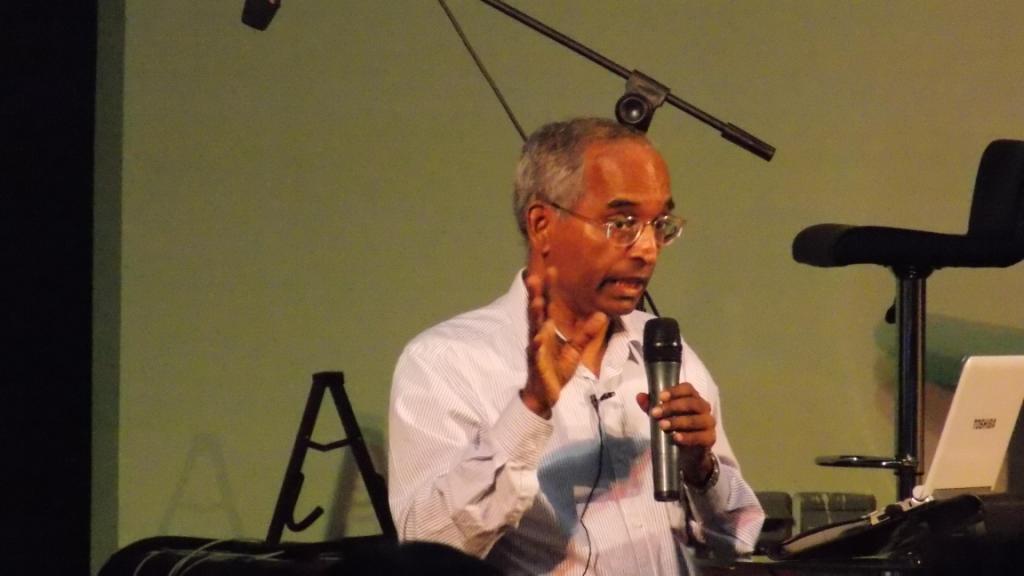
30 June 2013 by Natasha Kim CM-
Dr. T. Maniam talked about lay counseling and how Christian Counseling (CC) holds much promise. It returns the counselee to wholeness, not only by using human resources and skills, but with the wisdom of God’s infallible Word, and the help of the divine counselor Himself. The talk was given at the 3rd National Association of Christian Counselors Malaysia (NACC).
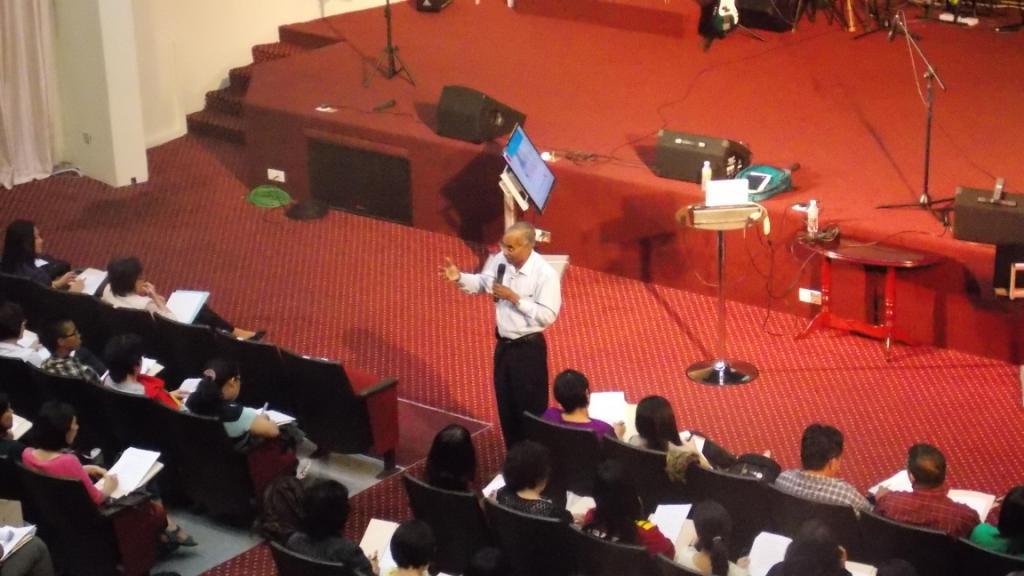
Life difficulties are part and parcel of being fallen human beings. “We are all part of the fallen human race because we are children of Adam and Eve. People need to recognize the reality that we cannot live in a world that we have made for ourselves. There is absolution from sin but none from reality” said Maniam. Often people create their own realities in their minds about Christianity, but they forget they have to go back to the foundation, which is the Bible.
Now you do not have to be a counselor to care for others but counselors are in fact able to care in more a meaningful and in depth ways. He shared that the reasons it doesn’t always work out is not so widely acknowledged. “Many others have had to go seek help elsewhere, some have gotten worse, and a few have taken their own lives. If CC is to help all, we must find out why it does not benefit some” shared Maniam.

“A symptom becomes a disorder when it causes us severe distress” said Maniam. When this happens it affects our bodily functions. It is important to be able to differentiate between disorders and illnesses because if the problem is severe it is best treated by psychologists or psychiatrists. He also mentioned that many disorders need physical treatment in combination with counseling and therapy. This is important because if the differentiation cannot be made, people suffer.
People often confuse feelings of depression with depressive illness. Human problems are complex. Difficulties may grow into illnesses and that’s where lay counselors come in, to try n help prevent that.
In addition to that, the reason counselees are protected is because the relationship between counselor and counselee is not an equal relationship because counselors have power over counselees.
Principles that Govern Counseling
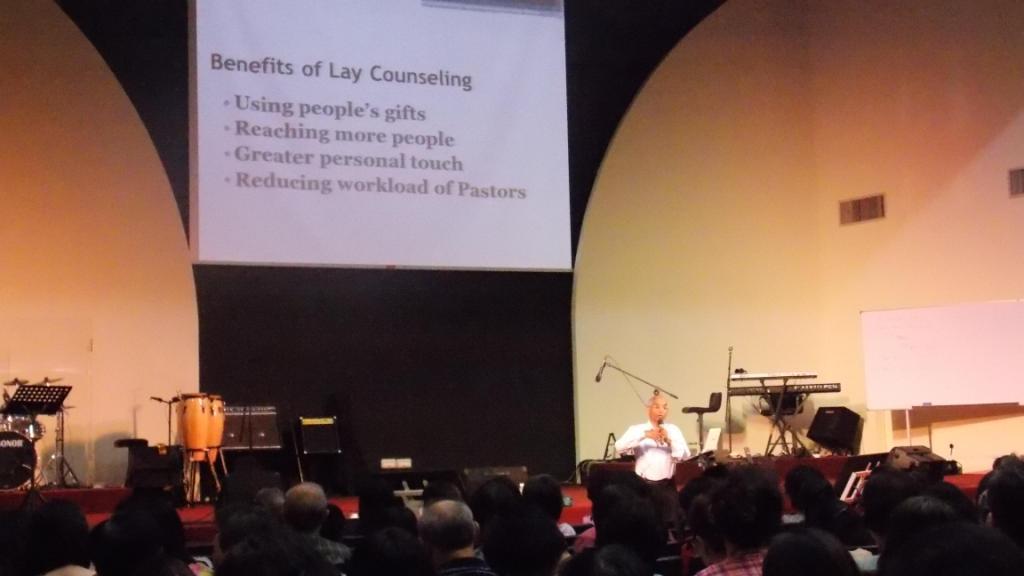
- Ethics – respect for autonomy, beneficence (doing good), non-maleficence (do no harm), justice (fairness), fidelity (trust and confidentiality)
- Objectives – guidance, re-assurance, advice, encouragement, ventilation of emotions, clarifying, thinking, re-orienting goals and aspirations and accepting limitations.
- Overarching Scriptural Truths – man is made in the image of God (Genesis 1:27) ; yet he has an affinity to other living creatures (compare Genesis 1:30 to with 2:7); man as a person is profoundly deceitful (Jeremiah 17:9 – applies to both counselor and counselee).
Nature, Nurture and Grace
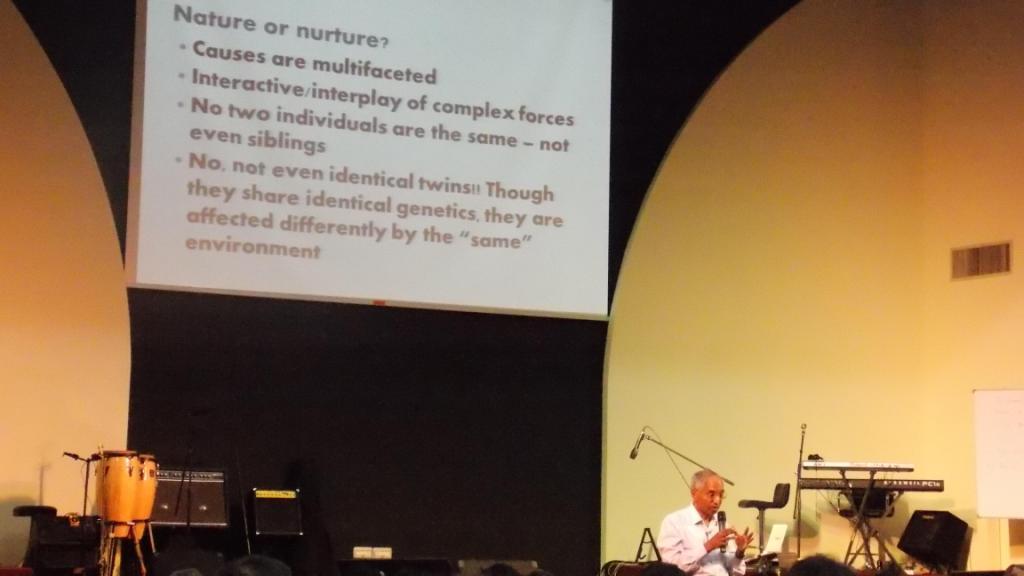
God doesn’t change to fit us, we change to fit Him. It is the nature of God that helps us respond in different ways.
“So we make it our goal to please him, whether we are at home in the body or away from it.” (2 Corinthians 5:9)
The verse above tells us that our goal is to please God whether we’re alive or not. Most people who suffer from problems suffer a multitude of problems that can be linked together because a human being is body, mind and soul. God heals people in answer to prayer but he may choose to heal people through means e.g medication, therapies etc, because it is God that has enabled people to discover medicine. God chooses to act differently in different people’s lives.
Pitfalls
- Focusing on therapeutic technique, and ignoring therapeutic relationship
- Transference and counter- transference
- Therapeutic boundaries and boundary violations? Should a counselor treat his/her friends or church members?
- Unhelpful attitudes towards modern psychology and psychiatry- these are not witchcraft!
- Change the tool to fit the task, not the other way around. There is no single technique for all problems. One size does not fit all!
- Are techniques evidence based? What are the accepted techniques for common problems?
The basic skills that can avoid this pitfall is active listening, both verbal and non-verbal as well as simple behavioral techniques (not to be treated as unspiritual). Supervision can also help whether from peers, family or colleagues.
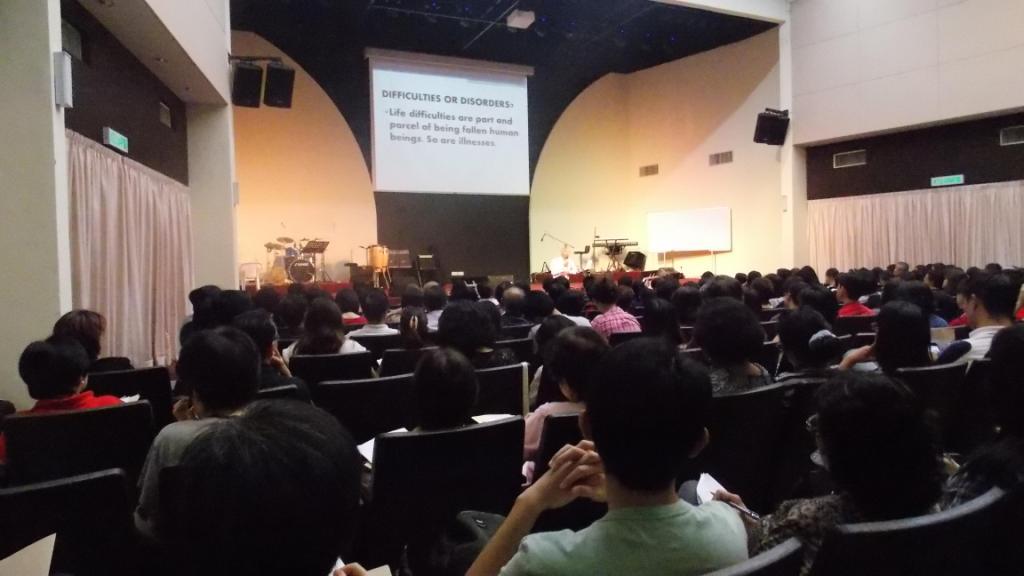
Furthermore, when giving re-assurance Maniam shared that re-assurance must be appropriate and timely. “The desire to re-assure can give them false re-assurance, and that is not right” he said. He added that, “There are limits between counselor and counselee that we cannot cross, such as dating your counselee or helping them financially” Counselors must remain boundaries to protect counselees.
At the end of the talk, Maniam encouraged all counselors to set boundaries and rules before counseling and to think everything through and be realistic. Proper CC counseling has put many lives back on a firmer Biblical foundation, but it has to be done properly and with proper guidance.
Dear Viewers in Christ, if you find this article edifying to you, please share with your friends or loved ones by using the social media plugs (Share, Email to this article). The Lord will surely bless you as you bless others. May the Lord’s peace and love be with you.




Professor Dr T Maniam is certainly a light and salt where he is very highly regarded in the field of counseling and psychology in Malaysian academic and practitioner circles.
The challenge for those involved in what is labelled as 'Christian' counseling is the need to be very aware of the presuppositions behind it. We assume that the label Christian carries with it, absolute fidelity to biblical truth and revelation, and especially the supremacy of Christ in all of life.
The challenge then would be to recognize that 'Christian' counseling must have, at its root and source, God! And especially through the revelation of His Son (John 1:1-14). This simply means that the goal of counseling, at least from a biblical, and therefore, 'Christian' view, would be for God's glory. We cannot assume that the success of internvention is by default, for God's glory. If the counseling intervention only serves to strengthen the Freudian understood ego's strength in making decisions based on solely human nature assumptions, and thereby of the flesh, meaning from the Adamic nature, I think we have a disparate goal from the Scriptures. Romans chapter 8 is chockful about how the flesh 'cannot please God!'.
So the goal of the 'Christian' counselor would be to first and foremost, be faithful to His Lord and Master, our Savior Jesus Christ, and not to secular principles and code. This presuppositional level is already the first challenge for a regenerate believer attempting to practice counseling, whether it be with an unregenerate person (not born-again), or with someone who 'thinks' that they are a believer, but have not been regenerate.
These issues are still being worked out, debated and discussed in the American Association of Christian Counselors (AACC), and theologians, academics from the schools of psychology and counseling, with practitioners. The way forward is with an ethos of humility, recognizing our dependence upon the Holy Spirit, as we continue to be open to the distinct challenge of having to practise counseling with a diverse constituency.